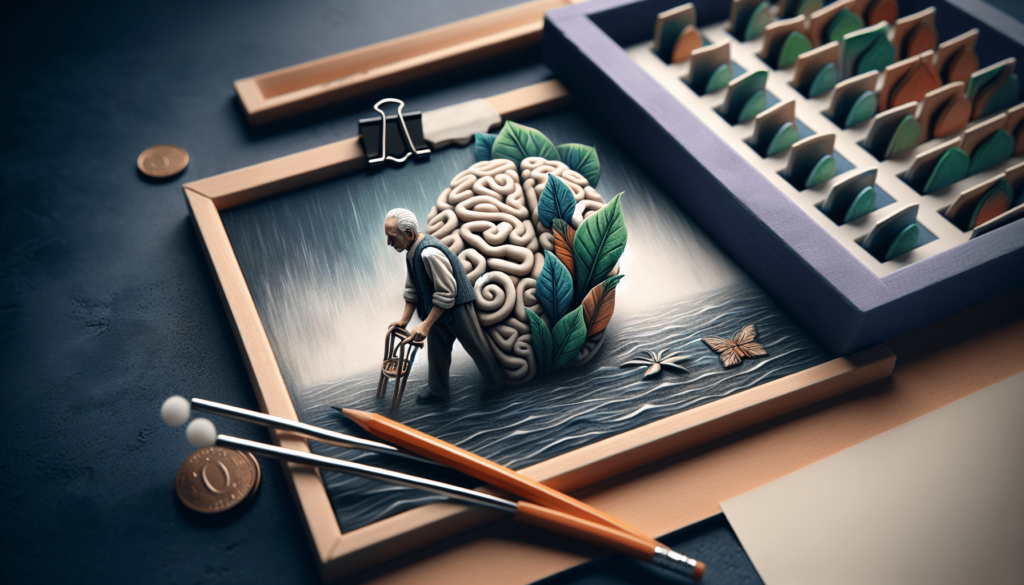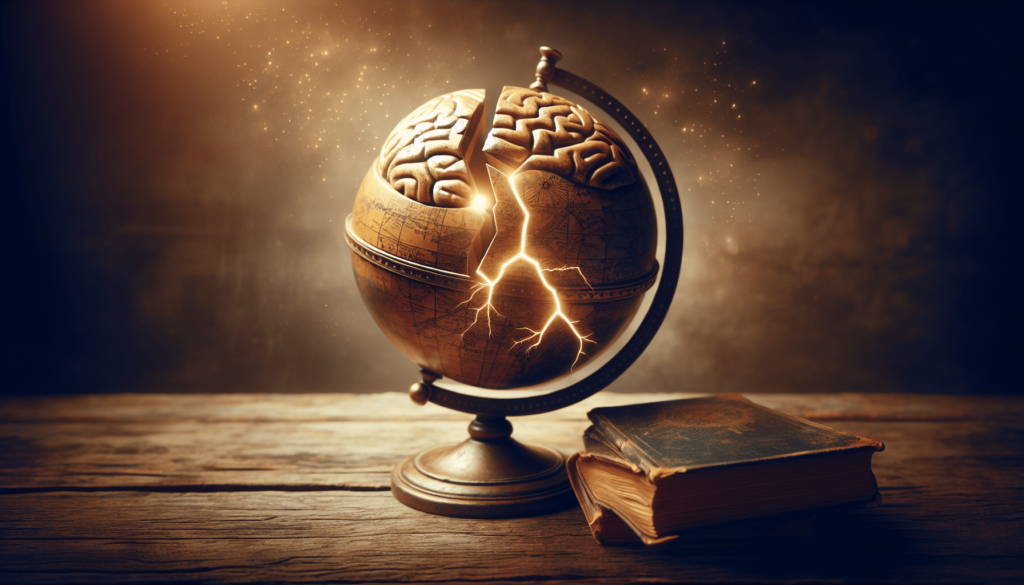As we go through life, it’s no secret that our memory begins to change. But have you ever wondered how these age-related memory impairments can impact our ability to learn new things? In this article, we will explore the fascinating world of memory and its intricate relationship with our learning capabilities. Get ready to uncover the nuances of memory impairments and understand how they can influence our journey to acquiring new knowledge.
What are Age-Related Memory Impairments?
Defining age-related memory impairments
Age-related memory impairments refer to changes in memory function that occur as a natural part of the aging process. As we grow older, it is not uncommon to experience gradual declines in memory abilities. These impairments can manifest in various ways, such as forgetting names, misplacing items, or experiencing difficulties in recalling recent events.
Understanding the different types of age-related memory impairments
There are two primary types of age-related memory impairments – age-related memory loss and dementia. Age-related memory loss, also known as mild cognitive impairment, involves mild and gradual declines in memory function that do not significantly interfere with daily activities. On the other hand, dementia represents a more severe and progressive decline in multiple cognitive domains, including memory, attention, and language.
Causes of age-related memory impairments
Age-related memory impairments can have multiple causes, including both biological and lifestyle factors. Biological factors include changes in brain structure and function, such as a decrease in the size of the hippocampus, which is crucial for memory consolidation. Lifestyle factors, such as chronic stress, poor sleep, and sedentary behavior, can also contribute to memory impairments in older adults.
The Brain and Memory Function
Understanding the brain’s role in memory
Memory is a complex cognitive process that involves various regions of the brain working together. The hippocampus, located in the medial temporal lobe, plays a critical role in forming and consolidating new memories. Additionally, the prefrontal cortex, parietal cortex, and other brain regions are involved in different aspects of memory, such as attention, encoding, and retrieval.
How the brain stores new information
When we learn something new, information passes through different stages of memory processing. Initially, sensory information is registered in sensory memory, where it is briefly held. Then, the information is transferred to short-term memory, where we can consciously hold a limited amount of information for a short duration. With adequate consolidation, the information is eventually encoded into long-term memory, where it can be retrieved at a later time.
Age-related changes in the brain
As we age, certain changes occur in the brain, which can impact memory function. The hippocampus, responsible for forming new memories, tends to shrink in size with age. This can influence the efficiency of memory encoding and consolidation. Additionally, there may be reduced blood flow to the brain, changes in neurotransmitter levels, and an increased risk of developing age-related diseases such as Alzheimer’s, which can further affect memory.
How Age Affects Memory

Normal changes in memory with age
It is important to note that some memory changes with age are considered normal and do not necessarily indicate a neurological disorder. For example, mild forgetfulness or occasional difficulty remembering names or details can be a common part of the aging process. However, these changes should not significantly impact daily functioning.
Difference between age-related memory loss and dementia
Age-related memory loss, or mild cognitive impairment, is distinct from dementia. While both involve memory problems, dementia is characterized by more severe cognitive decline that interferes with multiple aspects of daily life. Individuals with dementia may experience difficulties with language, problem-solving, and visual perception, in addition to memory impairment.
Common age-related memory complaints
Certain memory complaints are commonly reported by older adults. Forgetting appointments, misplacing items, and occasionally struggling to find the right word are often part of normal age-related memory changes. These memory lapses tend to be more occasional and do not significantly impair overall functioning. It is important, however, to pay attention to any significant or persistent changes in memory, as they may require further evaluation.
How Age-Related Memory Impairments can Impact Learning
The learning process in the brain
The ability to learn new information relies on various cognitive processes, including attention, encoding, consolidation, and retrieval. When learning something new, our brains need to actively process and create connections between new information and existing knowledge. This process allows for the integration of new information into long-term memory.
Impact of memory impairments on learning new information
Age-related memory impairments can pose challenges to the learning process. Difficulties with attention and encoding can make it harder for older adults to grasp and remember new information. Additionally, retrieval problems may hinder their ability to recall recently learned material. This can be particularly frustrating when trying to acquire new skills or knowledge.
How memory impairments can slow down the learning process
Memory impairments can slow down the learning process by requiring more repetitions or increased effort to encode new information. Older adults may need additional time to consolidate and solidify new memories, which can result in a slower pace of learning compared to younger individuals. This slower pace may lead to feelings of frustration and discouragement when trying to learn new things.
Studies on Age, Memory, and Learning

Recent studies exploring memory and learning in older adults
Research on age, memory, and learning has provided valuable insights into understanding the impact of age-related memory impairments. Recent studies have examined different interventions, brain-training techniques, and lifestyle factors that can influence memory and learning outcomes in older adults. These studies aim to develop effective strategies to support and enhance cognitive abilities in aging populations.
Understanding the research findings
The research findings highlight the potential for cognitive interventions, such as memory training exercises and lifestyle modifications, to improve memory and learning in older adults. It has been observed that targeted cognitive interventions can enhance specific cognitive abilities, including attention, working memory, and executive functions. Additionally, studies emphasize the importance of maintaining a healthy lifestyle, including regular physical exercise, proper nutrition, and adequate sleep, for optimal cognitive functioning.
Practical applications of the research
The findings from research studies on age, memory, and learning offer practical applications for older adults seeking to improve memory and learning abilities. Implementing memory-enhancing strategies, engaging in brain-training exercises, and adopting a healthy lifestyle can all contribute to better memory performance and learning outcomes. These practical applications can empower individuals to take an active role in maintaining and enhancing their cognitive abilities as they age.
Challenges of Learning New Things with Age-Related Memory Impairments

Difficulties in learning new technologies
One significant challenge for older adults with age-related memory impairments is learning and adapting to new technologies. Rapid advancements in technology require individuals to continuously acquire new skills and knowledge. However, memory impairments can make it challenging for older adults to remember instructions, navigate new interfaces, and retain information related to digital devices and applications.
Struggling with retaining new information
Another common challenge is the difficulty older adults face in retaining newly acquired information. While they may initially grasp and understand new concepts, the ability to recall and retrieve this information later on can be impaired. This can be frustrating, as it may lead to a feeling of constantly having to relearn previously covered material.
Declined adaptability to changes
Age-related memory impairments can also impact an individual’s adaptability to changes in their environment or circumstances. Older adults may struggle to learn and adapt to new routines, procedures, or changes in their social or physical environment. This can make it more challenging for them to adjust to new situations and acquire new skills.
Strategies to Improve Memory and Learning in Older Adults
Lifestyle changes to enhance memory
Several lifestyle changes can be implemented to support memory and learning in older adults. Regular physical exercise has been shown to improve cognitive function, including memory, by increasing blood flow to the brain and promoting neurogenesis. A healthy diet rich in fruits, vegetables, and omega-3 fatty acids can also provide essential nutrients for optimal brain function. Additionally, maintaining social connections and engaging in intellectually stimulating activities can help preserve cognitive abilities.
Brain-training exercises
Engaging in brain-training exercises has become increasingly popular as a means to improve memory and cognitive abilities in older adults. These exercises often involve tasks that challenge various cognitive skills, such as attention, working memory, and problem-solving. Examples of brain-training activities include puzzles, memory games, and computer-based cognitive training programs.
Using memory aids
Memory aids can provide practical support for older adults with age-related memory impairments. Simple strategies, such as using calendars, to-do lists, and reminders can help with organizing and remembering important tasks and events. Digital tools, such as smartphone applications, can also be utilized to set reminders, store notes, and provide visual prompts to aid memory.
Medical Treatments and Interventions for Age-Related Memory Impairments
Medication options for memory loss
Certain medications may be prescribed for individuals experiencing memory impairments due to age-related conditions, such as Alzheimer’s disease. These medications aim to improve cognitive function and slow down the progression of memory decline. Commonly prescribed drugs include cholinesterase inhibitors, which increase neurotransmitter levels in the brain, and memantine, which regulates a different neurotransmitter involved in memory.
Successful interventions for improving memory
Aside from medication, various interventions have shown promise in improving memory function in older adults. Cognitive rehabilitation programs, which involve targeted memory training exercises and strategies, have been found to enhance memory performance. Additionally, interventions focusing on stress management, sleep optimization, and comprehensive lifestyle modifications have also demonstrated benefits for memory enhancement.
Future directions for medical treatments
Ongoing research aims to develop new medical treatments for age-related memory impairments. Advances in neuroscience and pharmacology may lead to the discovery of more effective drugs that can enhance memory function and slow down the progression of cognitive decline. Additionally, emerging technologies and interventions, such as neurostimulation and gene therapy, hold potential for future medical treatments.
Role of Technology in Assisting Memory and Learning
How technology can aid memory and support learning
Technology offers numerous tools and applications that can assist older adults with memory impairments in their daily lives. Memory aids, such as smartphone apps and smart home devices, can provide reminders, prompts, and organization systems to support memory recall and task completion. Similarly, digital platforms and online resources offer accessible and interactive learning materials that can be tailored to individual learning needs.
Different types of tech tools available
A wide range of technological tools is available to assist individuals with age-related memory impairments in learning new things. These tools include voice-activated devices, digital calendars, reminder apps, and cognitive training apps. Virtual reality programs and computer-based learning platforms can also provide immersive and engaging learning experiences that enhance memory retention and knowledge acquisition.
Challenges and benefits of using technology
While technology can be beneficial in supporting memory and learning, there are also challenges to consider. Older adults may face barriers such as limited familiarity with technology, difficulty navigating complex interfaces, and concerns regarding privacy and security. However, with the right support, training, and user-friendly design, technology can be a valuable asset in overcoming memory impairments and facilitating lifelong learning.
Psychological and Emotional Impacts of Age-Related Memory Impairments on Learning
Effects of memory impairments on self-esteem and confidence
Memory impairments can have significant psychological and emotional impacts on older adults. Difficulties in remembering new information or recalling previously learned material can lead to a decrease in self-esteem and confidence. Older adults may feel frustrated, embarrassed, or inadequate, especially in situations where their memory lapses are noticeable or perceived as a sign of cognitive decline.
Anxiety and depression linked to memory loss
Memory impairments can also contribute to increased levels of anxiety and depression in older adults. The fear of forgetting important details or experiencing memory lapses in various aspects of life can lead to heightened worry and stress. Additionally, the emotional toll of struggling to learn new things while simultaneously dealing with memory difficulties can further exacerbate feelings of sadness and frustration.
Approaches to managing emotional impacts
It is important for older adults with age-related memory impairments to address the psychological and emotional impacts associated with their condition. Connecting with supportive social networks, such as family, friends, or support groups, can provide understanding and empathy. Seeking professional help from therapists or counselors experienced in geriatric psychology can also offer strategies for managing anxiety, depression, and improving overall well-being.
In conclusion, age-related memory impairments can affect the learning process, making it more challenging for older adults to acquire new information and skills. Understanding the different types and causes of age-related memory impairments is crucial in developing effective strategies to support memory and learning in older adults. By implementing lifestyle changes, engaging in brain-training exercises, utilizing memory aids, and exploring medical interventions when necessary, older adults can enhance their memory and learning abilities. Technology can also play a significant role in providing assistance and facilitating the learning process for individuals with age-related memory impairments. It is important to address the psychological and emotional impacts of memory impairments, as they can significantly impact an individual’s well-being and overall quality of life. With proper support and strategies, older adults can continue to engage in lifelong learning and maintain cognitive vitality as they age.



